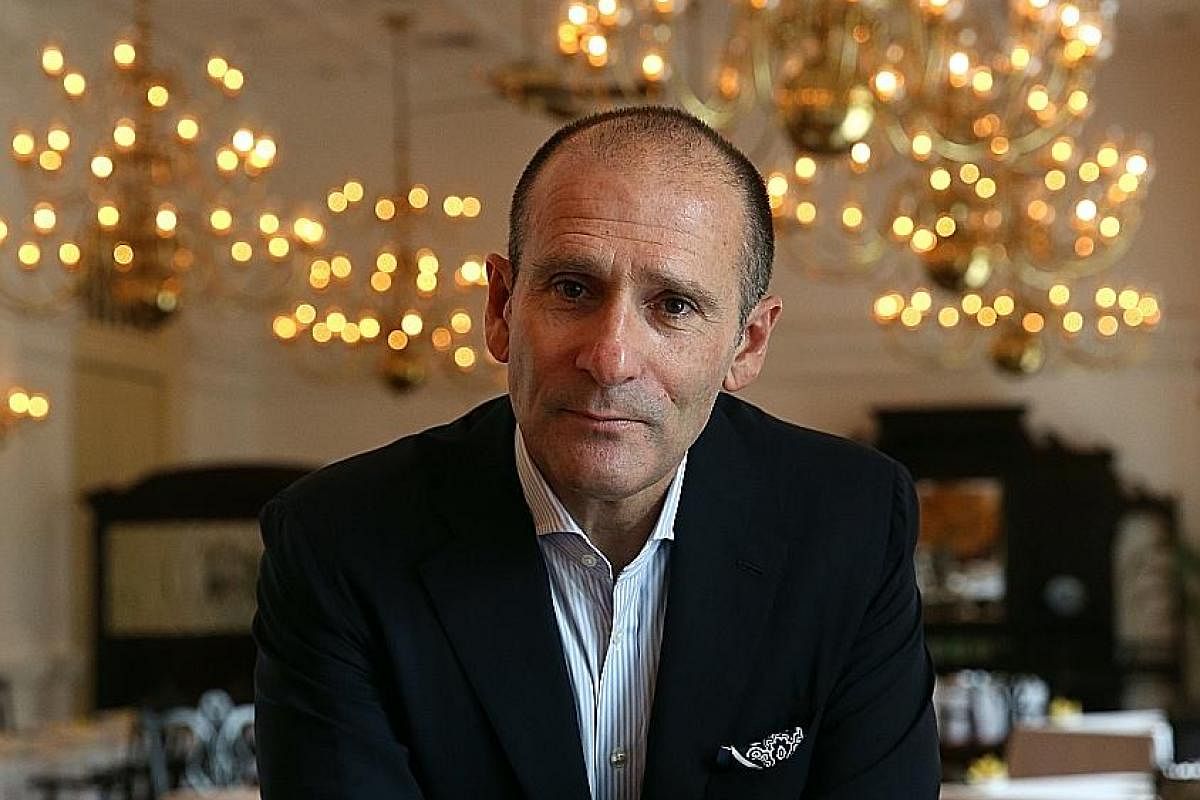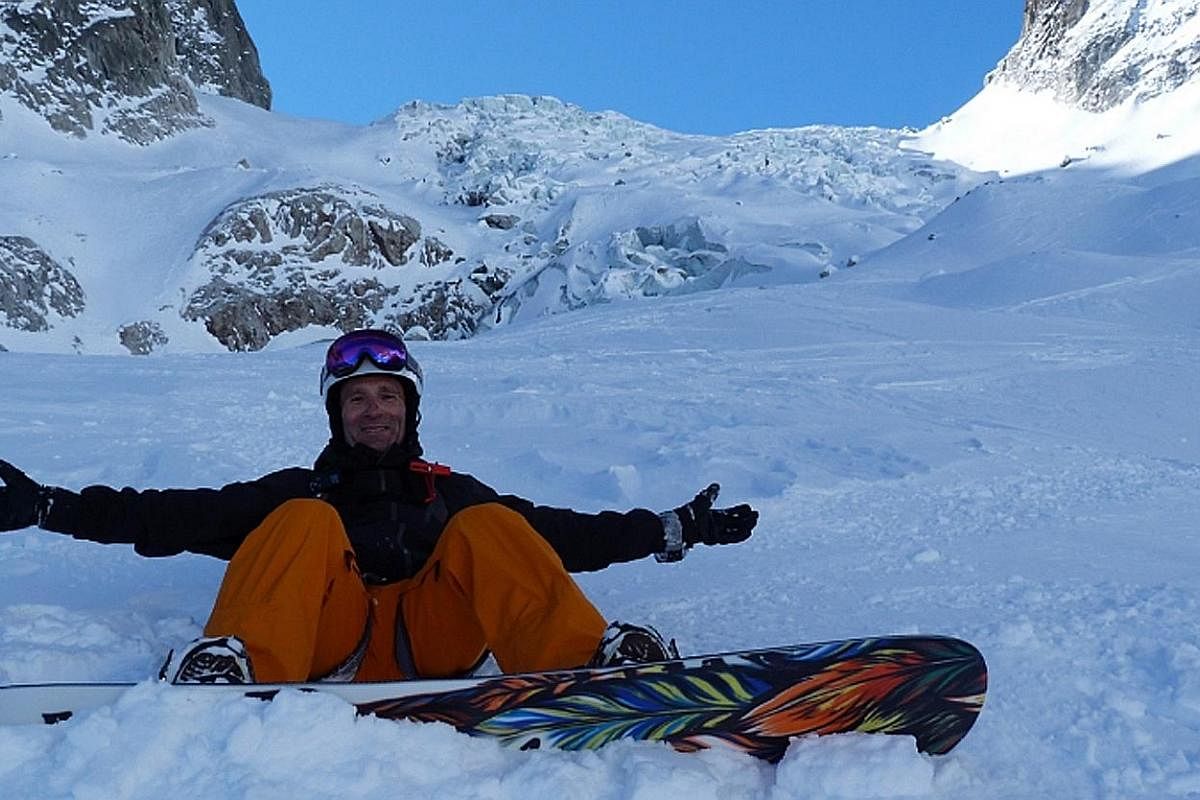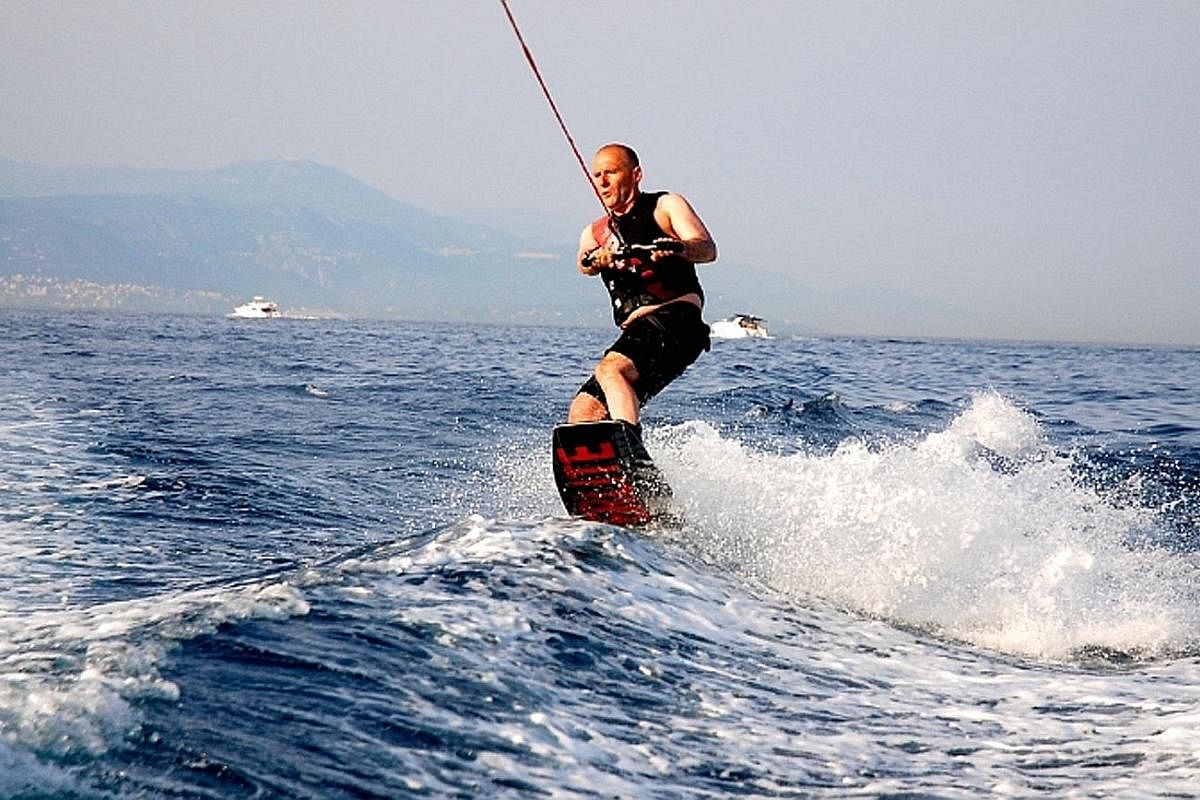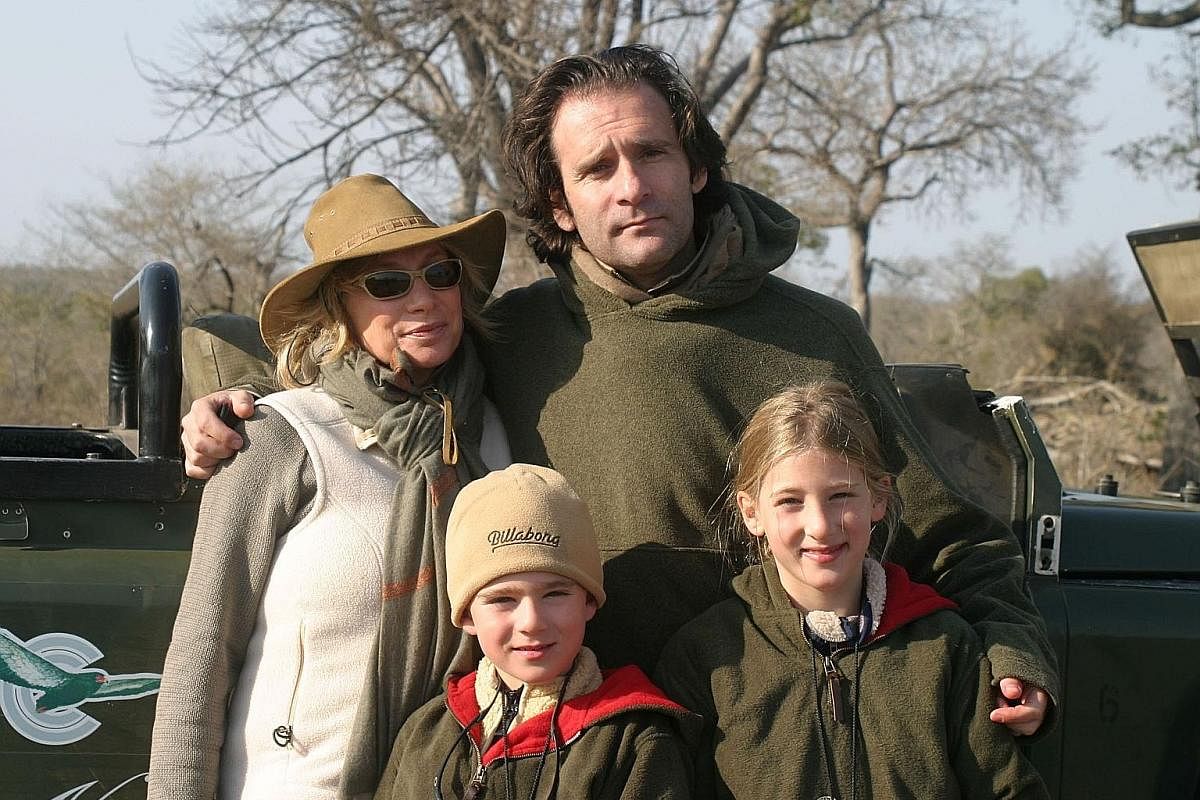The Life Interview With Gavin Tollman
Singaporean travellers understand cultural nuances in places they visit
Trafalgar's global chief executive changed the game in guided tours when he introduced insider experiences for guests




Mr Gavin Tollman is a purveyor of insider experiences for travellers. He relishes it when guests on his Trafalgar coach excursions slip behind the velvet ropes of the Vatican to wander in its gardens, away from the crush; or join Turkish villagers in their homes for little rustic feasts of yogurt soup and tomato-stuffed eggplant.
Such immersive moments are more likely the domain of luxury bespoke travel, or independent travellers, rather than large group tours of 40 travellers or more, like those he organises.
But he has made it his business in the last half-dozen years to craft "richer, deeper" moments for guests who sign up for 230 itineraries across six continents, including Europe, Trafalgar's forte.
Mr Tollman, 54, is the global chief executive of Trafalgar, founded 70 years ago in London's Trafalgar Square with the mission of bringing home British troops after World War II.
A private company, Trafalgar has seven main offices worldwide, including in Singapore, which Mr Tollman considers a high performer. "Our business out of Singapore has tripled in the last three years. We've enjoyed wonderful success,'' he tells The Straits Times on a recent trip.
Trafalgar had worked with a general sales agent here for 20 years before Mr Tollman decided, in 2011, during his annual visit, that with a Singapore office and manager, "we would see greater success".
He has been coming to Singapore for 15 years now. "What I love most about doing business in Singapore would be the people, the ease of doing business and, most importantly, my favourite dish - chilli crab."
Singaporeans, he observes, are enlightened travellers who "understand cultural nuances" in the places they visit.
His uncle, Mr Stanley Tollman, now 87, and his late father, Arnold, had acquired Trafalgar in the 1960s. From then on, the two South African brothers built The Travel Corporation, a globe-girdling empire with 30 travel brands for various budgets and journey styles.
"Forbes calls it the biggest travel company you've never heard of,'' Mr Gavin Tollman says. "The reason is that it's always been Stanley's desire that all that matters is the strength of the brands individually."
Run by four generations of the Tollman family, the portfolio now includes Contiki trips for the 18-to- 35 age group, Uniworld boutique river cruises and Red Carnation luxury hotels and spas. There are also niche vacations in Africa, adventure holidays and a hop-on-and-off coach network in Europe for backpackers.
Trafalgar, the flagship, focuses on escorted tours with insider experiences. Around 2009, Mr Tollman decided to change the game in guided tours, which tended to be generic and not much fun. "They reminded me of my high school trips."
But travellers were on a quest for local experiences, beyond sightseeing.
"There was a prevalence of the desire to get below the surface of a destination. We saw one of our greatest opportunities. We would take our guests to a destination and do it far better than them doing it on their own. We would be like the local who tells you what to do, at what time of the day."
Their first foray involved their now-signature Be My Guest dining experiences, in 2010. The Trafalgar team persuaded two widowed sisters in Sorrento, in southern Italy, to receive tourists.
"The sisters were friends of our friends and they had a home overlooking the Bay of Naples and a lemon grove. The food was simple. They made spaghetti al pomodoro - pasta with tomato sauce. They made their own limoncello. It was real. Guests would have an early dinner, with a sunset over the sea."
He adds: "It's a personal belief that one of the best things in travel is to break bread with locals. It's insightful."
Besides hyper-local dining, bespoke experiences are embedded in trips for a spot of "story-doing", rather than storytelling. So guests may make goat cheese in a Loire Valley farm or learn flamenco dancing in Seville, pop into FC Barcelona's football stadium or create delicate Japanese washi paper in Gokayama.
Along the way, Mr Tollman hopes to sustain small businesses and artisans, such as the last weaver in the Puglia region of Italy, even as these locals create memories for visitors.
"That's the power we have today, making a destination come alive. Every single year, we raise the bar higher,'' he says.
Trips are peppered with other colourful local specialists - dancers, archaeologists, nuns - who merrily transport guests into their realm.
The greatest change was in hiring travel directors, who lead tour groups, based on personality first, and knowledge second.
"I hired an incredible lady from Virgin Atlantic who was in charge of flight attendant training. We created bespoke training programmes for travel directors, to look at travel through their guests' eyes,'' he says.
"Our travel directors are people you want to holiday with. Everyone loves them. Our trips are measured in smiles. On long drives, we sing. It's a party."
Since going immersive, Trafalgar has collected 46 major awards in the last five years. Travel Weekly, Flight Centre and The Telegraph, for instance, have feted it as the best escorted tour operator.
Mr Tollman, based in Geneva, gets ideas when he pursues the outdoor life in the mountains of Switzerland.
"I love the snow. I was an early adopter of snowboarding; I'm known as the old guy on the mountain. In the last two years, I've done split-boarding to inaccessible places." Split-boarding involves trekking up a mountain on two skis. Then the skis are connected to form a snowboard for an exhilarating descent.
In summer, he is also in the Alps, where it is uplifting and calming to hike.
"At a high altitude, the cleanliness of the air, the vastness, the great solitude - it's all really invigorating. All my great ideas come at high altitudes. The team really gets nervous when I am in the mountains."
He came up with the entire structure of the Explorer city packages while walking in the Alps one winter. Introduced last year, the series lets travellers immerse themselves for a full week in a city such as Rome, Paris and London.
The shift in direction to immersive travel since 2009 has increased sales, though he will mention only that sales were up 15 per cent over the last year.
He highlights other figures instead: Trafalgar has 230 itineraries in 66 countries on six continents, except Antarctica. It celebrates its 70th anniversary on Sept 20 and, over these decades, has sent five million guests globe-trotting.
He himself made 17 trips last year to meet guests and personally reads reviews aggregated on the Trafalgar website.
His job is to fulfil people's dreams
Industry rivals are cutting into Trafalgar's pie, however, and adding local experiences to their trips. Mr Tollman is mindful that he has to stay relevant to stay ahead and illustrates this point with his Geneva office.
Apart from photos of his wife Toni, a South African interior designer in her early 50s, he treasures a letter from a guest who wrote that travel profoundly changed her life when her eyes were opened to cultural differences.
"Travel breaks barriers at a time when people look inward,'' he says.
He has a photo of a Coke bottle, a reminder to keep things simple instead of communicating ideas with "19,000 words".
Also, he keeps a photograph of an old Kodak film box. "It's about the importance of remaining relevant in a changing world. When Kodak filed for Chapter 11 bankruptcy protection, it was a Dow Jones 100 company. It was a completely iconic brand in photography. But iconic brands can find it difficult to bring about change,'' he notes.
"I have a team that understands the need for change and never saying we can't do something."
Trafalgar's European product manager Lieza Bissett, 43, who has worked with the company for 28 years, says Mr Tollman never crosses the line into micro-management even as he is "incredibly hands-on" and will do anything to help the team achieve success.
"He's even involved in the selection of images for our brochures. Most people think about monuments when they think about Italy, but he said, 'Lieza, it's all about the food. It's about the smell and taste of the destination, the experiences.' He's constantly a reminder that travel is more than just top attractions. It's multi-sensory and all about experiences,'' she says.
Painting him as an inspirational leader and a forward thinker, she recounts: "He was the driving force behind our insider experiences. Regrettably, there are so many negative connotations about coach holidays and he wanted to change the conversation around 2009."
Ms Bissett, who has known her boss for more than two decades and remembers his long-haired days, says he is suited for this dream-merchant job. "He never rests, he always asks questions. He goes snowboarding. He rides Harleys. He has an adventurous spirit."
Mr Nick Lim, 43, president of the Singapore-based Trafalgar Asia, says: "As a leader, he is always pushing the team to dream bigger and he will back you up if he thinks you are on the right path. As a friend, he cares about the individual and his family as well."
Although Mr Tollman is now a leader in the travel industry, his first career was in banking, then hospitality, before his family invited him to join Trafalgar around 1996.
Born in South Africa, he had moved to Washington, DC, in 1982 to study finance at the American University. He remembers "the crazy Eighties of junk bonds" when, after graduation, he worked at Drexel Burnham Lambert, a major Wall Street investment banking firm.
Then he spent a solid decade in the hotel industry, including a stint running hotels in the Days Inn Management Company. He joined Trafalgar in 1996, managing its United States office, which he built into the largest European tour operator in the nation.
Eventually, he became president of the North American branch of Trafalgar's parent company, the Travel Corporation, in 2001. This gave him insight into more subsidiaries, including the youth-oriented Contiki and high-end Insight Vacations.
In 2010, he became global chief executive of Trafalgar, where he now presides over myriad responsibilities, from operations to marketing to the exciting arena of new travel concepts.
He says: "My entire role is to fulfil people's dreams. Isn't this the greatest job in the world?"
His job is also great because he works with two cousins and his uncle Stanley, the founder and chairman. They form the core leadership of The Travel Corporation.
Of his cousins, he says: "We are closer than most people who are brothers. Everyone is allowed to have his say. We check our egos at the door.
"Stanley gave us wonderful wisdom when we were kids. He gave us matches and said, 'It's very easy to break a match. When you combine them, they are almost unbreakable'. We call ourselves The Matches."
His wife Toni works on design for sister companies Uniworld cruises and Red Carnation hotels. They married in 2007 and do not have children. From another marriage, he has an undergraduate son Jack, 20, and a daughter, Deia, 22, who is studying art.
For fun, he and his wife travel, and collect art and artefacts for their homes in Geneva, London and Cape Town. "Our homes are 'collections' of our journeys."
He has many more places to go. "Dubrovnik - I like to transport myself into a different moment in time. Egypt - like with Israel, I get the same emotional attachment to history. One of the great beauties of travel is to stand in the spot of past events. It connects all the dots.
"Vietnam - I'm going in April for the first time. My son is so excited that he got to go to a destination before me."
And so he keeps wandering, one immersive journey after another. "I'm inspired to go places all the time."
•Follow Lee Siew Hua on Twitter @STsiewhua
Join ST's Telegram channel and get the latest breaking news delivered to you.
A version of this article appeared in the print edition of The Straits Times on February 06, 2017, with the headline Singaporean travellers understand cultural nuances in places they visit. Subscribe

